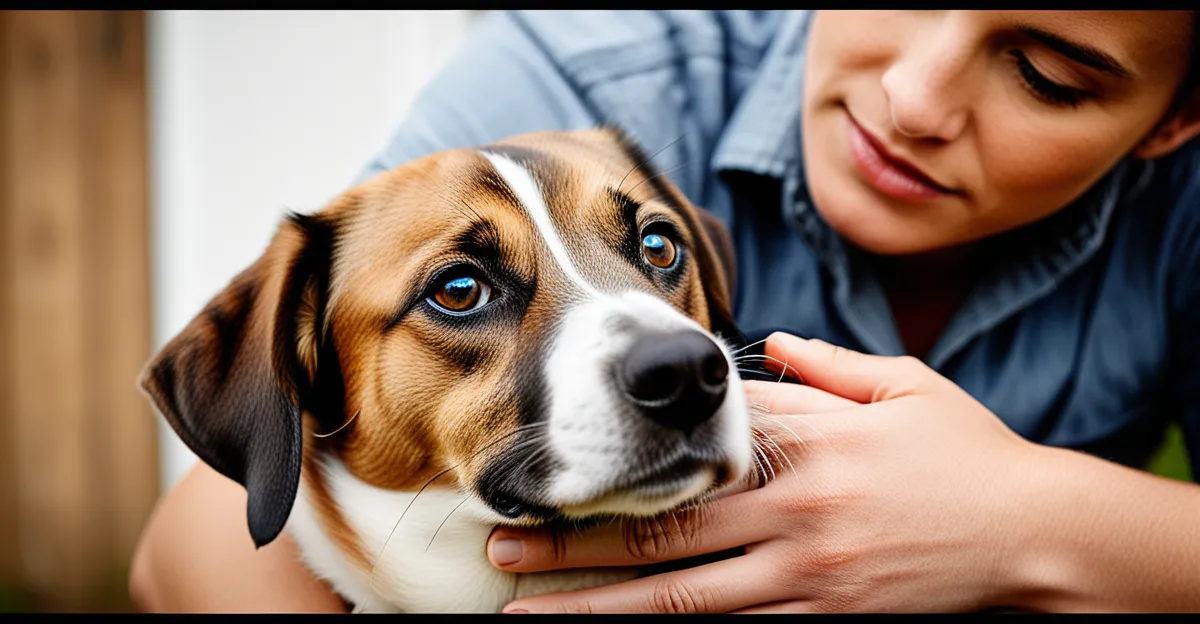Overview of Pet Adoption in the UK
Pet adoption is a meaningful and rewarding process in the UK, representing a significant avenue for giving animals a second chance at a loving home. Understanding the pet adoption rules and the UK adoption process is crucial for ensuring that pets are placed in suitable environments.
The general UK adoption process, though varying slightly between organizations, typically involves several key stages. Initially, potential adopters should consider their lifestyle and determine if they are ready for the responsibilities that owning a pet entails. Once a decision is made, the journey begins with selecting a shelter or adoption agency, each having its unique set of guidelines and criteria.
Additional reading : How Can You Enhance the Quality of Life for Your Pets in the UK?
A crucial aspect is understanding the legal guidelines that govern pet adoption, which ensures the well-being of both the pet and the adopter. These pet adoption rules are established to make sure that animals are placed in safe, nurturing environments where their physical and emotional needs are met. By adhering to these principles, potential pet owners can help create a balanced and rewarding human-animal connection, contributing positively to community welfare.
Eligibility Criteria for Pet Adoption
Understanding the eligibility criteria is crucial for those wishing to adopt a pet in the UK. Adoption agencies have specific age requirements, with most stipulating that applicants need to be at least 18 years old to qualify as potential pet owners. This ensures that individuals have the maturity and resources necessary to handle the responsibilities involved.
In the same genre : How do I select a veterinarian in the UK?
Prospective adopters must also demonstrate certain traits and responsibilities. This includes showing a commitment to providing a stable home environment and having a lifestyle that accommodates a pet’s needs. Individuals should be prepared for long-term commitments, as some pets, like dogs or cats, may live for more than a decade.
Home stability and lifestyle assessments are vital parts of determining suitability. Agencies typically look for environments that are safe and nurturing, ensuring that pets can thrive physically and emotionally. This process helps in fostering a deeper human-animal connection, promoting the well-being of both the pet and its new family.
Procedures Involved in Pet Adoption
Embarking on the pet adoption journey in the UK involves multiple well-defined steps, each designed to ensure the welfare of both the adopter and the pet. The adoption procedures commence with an initial application, where potential pet owners share their interest and basic information with the adoption agency.
Application Process
The application form is the first formal step, where prospective adopters provide details such as their living arrangements, previous experience with pets, and specific preferences for the type of pet they wish to adopt. This stage is crucial in helping organizations match the right pet with the right home, ensuring a harmonious living arrangement.
Interviews and Assessments
Following the submission of an application, shelters typically conduct interviews to further assess the suitability of the applicants. This process includes a discussion about an individual’s lifestyle, the responsibilities involved in pet ownership, and how these fit with the needs of the chosen pet. Shelters may also perform home visits to observe the environment in which the pet will be residing, emphasizing home stability and support from all family members.
Background Checks and References
Another essential step is the completion of background checks and obtaining references. Adoption agencies aim to verify that applicants have a stable history, both financially and personally, indicating reliability and commitment. The importance of well-conducted background checks cannot be overstated, as they help ensure that pets are placed in environments where they will be genuinely cherished and well-cared-for.
Through this comprehensive adoption process, shelters and agencies strive to place animals in safe, loving homes, while providing support and guidance to new pet owners, enhancing the overall adoption experience.
Documentation and Paperwork for Adoption
The adoption paperwork process is indispensable in formalizing any pet adoption in the UK. Potential adopters must be aware of the comprehensive list of documents required to complete an adoption successfully. Foremost among these requirements is valid identification, such as a passport or driver’s license, to confirm the identity of the adopter.
Documentation requirements also include proof of address to ensure the adopter’s living situation is stable and suitable for a pet. Additional documents often encompass information about housing agreements, especially if renting, to demonstrate that pets are permissible within the residence.
Legal forms and agreements play a critical role, outlining terms like ownership responsibilities and the return policy should the adoption not work out. Adopters may need to sign agreements indicating they understand and commit to the lifelong care of the new family member, aligning with all necessary pet adoption rules and guidelines.
Understanding these documentation processes ensures that potential adopters are well-prepared and compliant, making the transition smoother for both them and the adopting pet.
Home Checks and Assessments
Engaging in the pet adoption process isn’t just about choosing the right pet; it’s also about ensuring a safe, suitable environment for the new family member. Home checks and pet assessments are vital procedures conducted by adoption agencies to evaluate potential living conditions.
Overview of Home Check Procedures
Adoption agencies perform extensive home checks to assess whether the living environment complies with pet adoption rules. This involves visiting the adopter’s home, inspecting areas where the pet will eat, sleep, and play, ensuring these spaces are both safe and nurturing.
Factors Considered During Assessments
During these pet assessments, various factors are considered. Agencies look at the home’s size and layout to determine if it can accommodate the pet’s needs. Adequate space and access to the outdoors are particularly crucial for dogs and larger pets. Additionally, the safety of the environment, including secure fencing and pet-proofing measures, is evaluated to prevent potential hazards.
Discussion on Family Suitability
Beyond the physical environment, the suitability of the adopters’ family is another critical component. Agencies assess the family’s lifestyle and daily routine to ensure compatibility with pet ownership. Children and other pets in the household are also considered, emphasizing the importance of everyone’s involvement in welcoming the new pet. This holistic assessment ensures a supportive and loving environment, fostering a smooth transition for the new family member.
Adoption Fees and Financial Considerations
Understanding the adoption fees and financial implications in the UK is vital for anyone considering bringing a pet into their home. Typically, adoption fees vary across different organizations but provide an essential foundation for supporting animal welfare. These fees often cover fundamental expenses essential for the well-being of the pet.
Firstly, the fee usually includes costs related to vaccinations, ensuring the pet is up-to-date with its health and safety requirements. Microchipping is another important aspect; it enhances the pet’s security and traceability, offering peace of mind to new owners. Additionally, some shelters might offer initial medical check-ups and neutering as part of the package, further adding value to the initial payment.
Beyond these initial costs, potential adopters must consider the long-term financial responsibilities associated with pet ownership. Regular expenses such as food, annual veterinary care, pet insurance, and unexpected medical treatments can add up over time. Prospective pet owners should assess their financial stability and commitment to managing these ongoing costs adequately.
By understanding the comprehensive nature of adoption fees and considering all financial responsibilities, adoptive families can be well-prepared to offer a stable, loving environment while ensuring their beloved new pet’s health and happiness.
Regional Differences in Adoption Rules
Navigating pet adoption within the UK entails understanding regional adoption rules that may vary significantly across different areas. Each region often has its own UK pet policies and local regulations driven by distinct community needs and resources, which can directly influence the adoption experience.
Across the UK, local animal welfare organizations establish specific guidelines unique to their operational area. These variations might affect everything from the selection process to the specific legal requirements for prospective adopters. For instance, some regions might impose stricter age requirements or unique stipulations regarding home checks, considering the region’s housing and community dynamics.
Moreover, it’s essential for potential adopters to consult local resources to gather the most accurate and up-to-date information regarding regional adoption rules. This involves engaging with local shelters and adoption agencies, which can provide specific insights and guide adopters through the UK pet policies pertinent to their local area. By doing so, potential pet owners ensure they are fully compliant with local expectations and tailored community-specific criteria, thereby enhancing the welfare of both the pet and their future family.
Frequently Asked Questions about Pet Adoption
Navigating the pet adoption process can often lead to numerous pet adoption FAQs. Addressing these common queries helps prospective adopters gain a clearer understanding of what lies ahead and the requirements involved.
What is the Minimum Age Requirement for Pet Adoption?
Most adoption agencies stipulate that applicants must be at least 18 years old. This ensures that individuals are mature enough and possess the resources to manage the responsibilities of pet ownership.
Are Home Checks Necessary?
Yes, home checks are a typical part of the adoption process. Agencies conduct these home assessments to ensure a potential adoptive environment is safe and nurturing, aligning with pet adoption rules. These checks evaluate factors such as space, safety, and the overall suitability of the home for a pet.
What Costs are Associated with Pet Adoption?
Adoption fees usually cover necessary initial expenses like vaccinations and microchipping. However, prospective pet owners should also plan for long-term financial commitments, such as food, regular vet visits, and unforeseen medical needs.
Are There Any Legal Guidelines I Should Be Aware Of?
Understanding the legal guidelines is crucial to ensure compliance and guarantee the well-being of both the pet and the adopter. Adopters must adhere to rules regarding responsible ownership, which are vital for a successful adoption.
By addressing these common queries and providing support for adopters, potential pet owners can approach the adoption process with clarity and confidence, ensuring a smoother transition into pet ownership.








